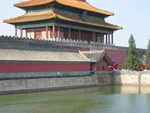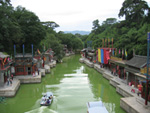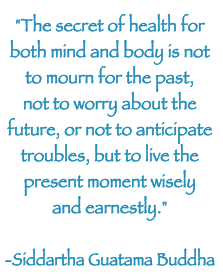Did you know?
• Acupuncture has been practiced
for thousands of years
Acupuncture is the insertion of very fine, pre-sterilized needles on
the body's surface, in order to influence physiological functioning of
the body.
Acupuncture, and the classical theories on which it is based,
is part of a centuries-old system of medicine. This system, originating
in China more than two thousand years ago, has its own style of diagnosis,
its own language for describing the human body and a host of unique and
powerful tools for bringing about and maintaining wellness. Best known
in the U.S. as a safe and effective treatment for pain, acupuncture can
also address many other medical complaints, from the common cold to chronic
illness, often while reducing or eliminating the need for prescription
drugs.
• Acupuncture feels very
comfortable, so much so that some patients fall asleep during the treatment
Most patients are delighted to find that acupuncture treatments are comfortable
and enjoyable. The thin, stainless, sterile needles rarely cause discomfort,
and generally result in a feeling of peacefulness and relaxation. Some
people may feel energized after the treatment, while others may wish to
rest. Many notice both symptoms and energy improving in the days following
treatment.
Some patients may experience a heavy, achy or tingling
sensation near the needled site or along the associated meridian pathway. In
Oriental medicine, such sensations are known as "De Qi" and
are an indication that the body's healing powers have been stimulated.
• Acupuncture promotes both physical and emotional
well being
The classical Chinese explanation, for acupuncture, is that channels
of energy run in regular patterns through the body and over its surface. These
energy channels, called meridians, are like rivers flowing through the
body to irrigate and nourish the tissues. An obstruction in the movement
of these energy rivers is like a dam that backs up in others causing pain
and dysfunction.
The meridians can be influenced by needling the acupuncture
points; the acupuncture needles unblock the obstructions at the dams, and
reestablish the regular flow through the meridians. Acupuncture treatments
can therefore help the body's internal organs correct imbalances in their
digestion, absorption, and energy production activities.
The modern scientific explanation is that needling the acupuncture points
stimulates the nervous system to release chemicals in the muscles, spinal
cord, and brain. These chemicals will either change the experience of pain,
or they will trigger the release of other chemicals and hormones which
influence the body's own internal regulating system.
The improved
energy and biochemical balance produced by acupuncture helps in the body's
own natural healing abilities. Acupuncture promotes
physical and emotional well-being; All without the use of drugs.
• You do not need to believe in acupuncture
for it to work.
Acupuncture is used successfully on cats, dogs, horses and other animals.
These animal patients do not understand or believe in the process that
helps them get better. A positive attitude toward wellness may reinforce
the effects of the treatment received, just as a negative attitude may
hinder the effects of acupuncture or any other treatment. A neutral attitude
("I don't know if I really believe in this.") will not block
the treatment results.
• Licensed Acupuncturist has
over 3,000 hours of training
Licensed acupuncturists are independent practitioners. Patients, in North
and South Carolina, are not required to obtain a referral from another
medical practitioner. It is recommended, though, that you see your
primary care physician on an annual basis.
To be a licensed acupuncturist
in North and South Carolina a practitioner must meet the following requirements:
Attendance to a three year postgraduate program accredited
by the Accreditation Commission for Acupuncture and Oriental Medicine (ACAOM).
(Wendy Swanson obtained a Masters degree in Acupuncture from Tri-State
College of Acupuncture after having completed a 3 year graduate program
which was comprised of didactic and clinical skills training totaling
over 3,000 hours of study).
Passage of an examination administered by the National
Certification Commission for Acupuncture and Oriental Medicine (NCCAOM)
and thus entitled to the designation 'Diplomate in Acupuncture' [Dipl.Ac.(NCCAOM)].
This examination includes written and practical components.
Completion of the Clean Needle Technique course administered by the
Council of Colleges of Acupuncture and Oriental Medicine (CCAOM).



